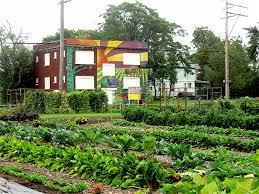Exam questions drawn from texts referenced here with an asterisk*...
Regeneration-
*2. Is indigeneity compatible with cosmopolitanism? 117
3. Why do you think language diversity correlates with biodiversity? 118
*4. Might the 30 by 30 movement be a success even if it fails to achieve its stated objective? 119
5. Why haven't we heard more about Lake Chad and other scenes of rapid climate change? 121
6. What's your favorite part of Nemonte Nenquimo's letter? 122-3
*7. What would Wendell say about that soil core from Kentucky? 125
8. Were you taught in grade school that "human beings are meant to be a keystone species"? 126 What were you taught about our relation to the rest of living nature?
9. Is it a coincidence that extractive agriculture has been male-dominated? 129 In general, do you think women have a more community-oriented approach? (And if so, how do we account for the political success of so many women who evidently do not?)
10. Do you think the Soul Fire Farm project can be an effective model for cities across the nation, in ending "food apartheid"? 132
11. Are you surprised by the impact of clean cookstoves? 134 Should we all be moving toward cleaner electrical cookstoves?
*12. Is it shocking that educating girls and women is still such a battle? 136-7 Is that finally going to change in most places around the world (considering, for instance, the present ferment in Iran)?
*13. Will you declare an ARK in your yard? 138f.
14. What does it mean to you to call the human component of work the most important? 143
15. Do we rely too heavily on the beneficence of philanthropists? 144f. Should we be against philanthropy when it supplants social responsibility more generally?
16. Can the divestment movement succeed?
1. Do you want or expect to live in a city, suburb, small town, or the rural countryside in the future? What has been your experience with urban living?
*2. COMMENT?: "What becomes of civilization... will be determined by what happens in urban and suburban environments." 149
3. COMMENT?: "Mayors are more effective than national or provincial leaders..."
4. What do you think of PH's vision of what a regenerative city might look like? Do you hope or expect to live in one someday?
*5. Did you know that Socrates spoke of solar energy? 150
6. Is Copenhagen appealing to you? 151
7. Do you support gas bans and rooftop solar?
8. Have you ever lived in a truly "walkable" place?
*9. Is there any good reason not to embrace LBC? 153
10. Should rooftop gardens be a standard requirement in new urban construction? 157
*11. In light of the contribution of cities to culture (159), did Marx have a point when he referred to "the idiocy of rural life"?
*12. What can be done to rescue cities (and their young inhabitants) from "environmental generational amnesia"? 160
*13. Will the promise of greater neighborliness and a sense of belonging to a community (163) persuade many to join the car-free movement, or at least scale back their dependence on driving?
14. How many amenities and necessities can you reach within 15 minutes on foot or bike? 164
*15. In view of the wisdom of carbon architecture and construction from biofibers (168), does it bother you that MTSU is so heavily invested in concrete?
*1. Do you think you have "lost your taste"? 171 Have you taken steps to regain it? Do you consume too much "junk"? Do you view eating as an ethical act?
*2. Do you do anything in particular at home to avoid or rectify food waste? 173
3. Have you begun deliberately to eat fewer processed substances and more plant-based alternatives? 175
4. Have you localized your diet, to greater or lesser extent? Do you or will you patronize CSAs?
177
5. Should public schools be fast food-free? 179 Should MTSU get rid of, or at least improve the nutritional contents of, vending machines on campus?
*6. Does the Cobbs' story remind you of Wendell? 180
*7. Are you grateful for the decommodification of coffee, beer, and other products? 181 Are you boycotting any Big Commodity products?
8. How do you feel about ants and other insects? Do you use insecticides, biocides, weed killers etc.? Do you resent the failure of early education to impress upon every student the vital role they play in ecosystems?
*9. Do you think restoring the American chestnut is a good idea, without the frivolity or uncertainty of restoring extinct animal species? 187
*10. Was Oliver Burkeman right? 189
11. COMMENT?: "We must either let some eating habits go or let the planet go." 191
*1. Given the current relative percentages of CO2 emissions from fossil fuels and energy derived from renewables, does this feel to you like "a momentous turning point in civilization"? 193
2. If "2% of the planet's wind would power all of civilization," would we be stupid and self-destructive NOT to move aggressively towards greater utilization of wind energy? 196
3. Can we "plug the leaks and close the loop" like Wildpoldsried" 200
*4. Considering how many more EVs are now in operation than just a decade ago, are you confident that transport via internal combustion is on its way out? 202
5. Do you have a heat pump? Shouldn't everyone? Should we be taxed to subsidize their installation? 205
*6. Were you aware of how wasteful cruise ships are? Will that keep you off of them? 209
7. Are you confident we can overcome the problematic issues invovled with lithium-ion batteries? 211
*8. Might the "extreme climate benefit" of microgrids also be a social benefit, enhancing the communal consciousness of those whose homes are thus connected? 213
*1. What will it take to produce a "corporate shift" that credibly addresses the climate crisis? 215
2. Revisiting this embarrassing question: how many of Michael Pollan's "foodlike substances" do you confess to enjoying? How many have you given up? How many will you give up? 217
3. Do you consciously factor the "true cost of junk food" into your eating choices? 218
*4. How far are we from "the food system of the future"? 219
5. If the US political system continues not to acknowledge universal healthcare as a "fundamental human right," do you expect that to precipitate an eventual and radical change in voters' attitudes and choices? 221
*6. Is it still a very tiny percentage of people who think "holistically about every facet of human well-being" or is that changing rapidly with the rising generation? Will or would that significantly impact our healthcare system, the pharmaceutical industry, and the perceived link between climate and health? 222
*7. Do you know where your bank invests your money? Will the Good Money model "fundamentally change the system of banking"? 225
8. Has the social media environment permanently crippled the prospects of mutualism as a corrective for human aggression? 227
1. Any concluding COMMENT on Paul Hawken's Regeneration, and the action steps indicated at the end?
==
Ministry for the Future-
2. How does your view from 2071 compare to KSR's?
3. Despite the disclaimer at the beginning of Ministry (hereafter referred to as MF), do you detect "any resenmblance to actual events, locales, or persons"?
4. Why do you think MF is dedicated to Fredric Jameson?
5. Is it plausible that the worst early impacts of climate change will come in India?
*6. Who is speaking, and why, in ch.2?
7. "That first global stocktake [in 2023] didn't go well..." Is this a safe prediction?
8. Will we have anything like the Subsidiary Body known as the Ministry for the Future as soon as 2025? Can we afford to wait much longer for it?
9. Should every member of the UN, and every head of state, and all students, be encouraged to read and discuss What We Owe the Future etc.?
What are your questions/comments on the book, its characters, its depiction of life in the relatively near future, etc.?
*Is the voluntary-exile scenario in chapter 14 something you can imagine ever having to experience yourself?
*What will it take to successfully "redirect fossil fuel companies to do decarbonization projects" and transition permanently from extractive industry? 53
What are you prepared personally to give up, in order to end your own "nonessential buying of things that degrade the biosphere"? 55 How often, for instance, do you make impulse purchases online?
Do you agree that living "at adequacy" is healthier and happier than the pursuit of wealth? 57 Is the notion that society must incentivize greed a myth propagated self-interestedly by the wealthy?
*Is there enough energy, food, housing, clothing, healthcare, education etc. for all at present population levels? Should "enough" be a guaranteed human right? 58
*Are "actor networks" real, with or without agency? 60
Does hope "have to reside in something like this: hope to do some good, no matter how fucked up you are"? 64
Do you, like Frank, feel a confused compulsion to do something? And do you think it's not impossible that one person might actually change things? 65
*How do we explain people in nations with rising inequality voting "for politicians who will increase their relative impoverishment"? Is monocausotaxophilia part of the explanation? 73
*Do we need to replace GDP? Or take the question of our collective health and stability "back out of the realm of quantification"? 76
Do climate scientists need now to be more like politicians? 82
"Philosophy is very often proving we can't think to the bottom of things..." 88 So is philosophy a help or a hindrance, when confronting a climate disaster?
"You can hide but you can't run." 105 Are we already a maximum-surveillance society? Is privacy a quaint concept of the past? Is anyplace truly off-grid?
*What do you think of covert "black wing" operations? 109 Are they a threat to democracy, a lifesaver for civilization, or as prevalent as KSR implies? Are they the Insider mirror of ecoterrorism? Are they "uncatchable"?
*Are there really Tzadikim Nistarium, anonymous ordinary heroes who "keep the world from falling apart"? 118 How do we distinguish the righteous from the self-righteous?
Does subglacial pumping sound likely to return ice-melt to its old speed? Or is it a silver bullet that fails to address the bigger problem? 121-2
Does periodizing remind you that things are always changing, or does it delude us into thinking that our present time is locked in? 123
Are you oddly-comforted by the thought that "we are all definitely always falling apart"? 124
*Would Wendell Berry agree that "a return to local knowledge and local ownership" leads to political power? 126 Do you?
*Are we wrong to discount future generations? 129-133
What do you think of the Children of Kali and their regard for "collateral damage" and "integrated pest management"? 136, 141
How close are we to recognizing that the cost of losing sea ice far outweighs the financial cost of avoiding it? 148
*Are public protest demonstrations just parties that don't change anything? 156 Are "representatve democracies" always sabotaged by wealth inequality ("the rich will fight it")? 156
Is the Davos World Economic Forum relevant to world events or just a distracting sideshow that has no significant influence on events? 159f.
*Do you think a "high middle class income" correlates with the greatest happiness? 163
*Has modern economic/technological efficiency become a bad thing? 165 Do most politicians concern themselves with how to "best arrange our lives together on this planet"? 166
Are "crazies" outnumbered 100-1? 168 Is there a "silent majority"? How effective can it be in securing social stability?
Is "society" real, or a conceptual abstraction? 169
Are economists and those who think like them trying "merely to make more money" and not trying to improve the system? 171
*Do we need a "carbon coin" to address "the tragedy of the time horizon"? 172
How can we lower the "discount rate"> 173
Can you explain blockchain and encryption (etc.) in simple but accurate terms? 177
Should California be a separate nation? 184 Or the Pacific Northwest? (See Ecotopia by Ernest Callenbach...)
*Are bankers "Non-democratic, answerable to no one"? 189
*How many watts do you think you use, if the average American uses 12,000? 196
Have you spent time in any truly walkable cities, where walking was "a form of entertainment"? 198
Is self-reliance "always a delusion"?
COMMENT?: "Only when things fall apart do you realize it can happen to you." 206
*How do you imagine the world might be different if we'd adopted Keynes's suggestion about bancors in 1944? 209
Do bankers and others in the private sector regard "saving the world [as] outside their purview"? 213
Was Marx or Hegel right about practice and theory? 216
*Should we stop, or at least sharply curtail, airflight and other fossil-burning transport? 228 Would that be a likely result of a Crash Day?
*Are "open source instruments that mimic the functions of all the big social media sites" (like Mastodon, for example) going to supplant Twitter and Facebook et al? 241
COMMENT?: "Simply talking was the strongest social media of all..." 247
*Would the six sectors and eleven policies mentioned on 251 suffice to end the climate crisis?
Will enough young people change "all their behaviors" in time? 252
Do we need a new (old) religion? 255
*Are most economists "moral and practical idiots" trying to calculate "the monetary value of human civilization"? 264 Would $50 billion to prevent catastrophic sea-level rise be a "bargain"? 265
Is the LA flood scenario plausible? Is LA going to have to be replaced? 279 Does the rest of the world really despise "the dream factory"? 286
*Is "a whole new internet ecology" like YourLock, Internet 3.0, possible? 281
Is going to Mars a ridiculous "fantasy of escape"? 289
If the central banks didn't agree to fund an open-access "carbon coin," could something like YourLock make it happen? 291
Is Badim right about "assholes" and meliorists? 296
*Is narcissism a major problem in the world today? 298 (see "Instagram therapy...")
What would you call the "fever killing our glaciers"? 303
Is war in the future likely to be "invisible and online for the most part"? 313
Why does near-future Switzerland have seven presidents? 314
Is the global financial system so complex that even the people running it don't understand it? 315
*Is KSR endorsing the assassination of "the rentier class" ("the people who make money simply by owning something that others need...")? 321
Will blockchain technology really drive illegal tax dodges into non-existence? 333
*Was KSR prophetic in predicting "the triumphant return of the so-called Lula Left, now also called Clean Brazil"? 343
*Is growth "the world's current reigning religion"? 345 Can a planetary consciousness give rise to a new and better one? 358
Will it take a heatwave killing hundreds of thousands of Americans to correct the cognitive error of thinking that catastrophe only happens to other people? 349
*Does the developing nation "over the horizon of time" seem real to you? 352
*What are the realistic prospects for a "new internet...a new kind of citizen of the world. Gaia citizenship... Earth citizen...planetary civilization"? 358
*Have you read any of "E.O. Wilson's great books"? 364
Is "World Spirit, Zeitgeist" real (or just a Hegelian fantasy)? 377
*Is the Navy's pay differential policy a good model for the corporate world? 382-3
*If there are currently about 25 million refugees in the world, is KSR being extravagant to predict 140 million in the coming years? 396
*Will Americans ever "come around" to the idea of capping personal wealth at $50 million? 405
*Will Americans ever accept "public utility districts" that treat food, water, shelter, clothing, electricity, health care, and education as human rights? 409
*Will we ever give up our "obsession with speed" in travel? What do you think of people who never look out the window of a plane? 419
*Are you impressed by the project list in chapter 85?
Do you dream of turning suburbs into habitat? 440
*If a major CO2 drawdown ever occurs, will it be substantially due to reforestation and kelp in the ocean shallows? 445-6, 454
Will world citizenship ever be a thing? 468 Or at least a more cosmopolitan form of nationalism?
From the final sections of MF:
Is Environmentalism anti-humanist? 477
*Do we need a BCHMI? 479
*Why does Mary insist “there is no such thing as fate”? 496, 563
Will we ever come to regard other species as fellow citizens? 501
*“Whether life means anything or not, ___ is real.” 502
*Earth is a pale blue dot, but… 525
*The point of the global festival Mary calls Gaia Day (545) was to feel a vibe of harmony, evoke a planetary mind or ___, and possibly even usher in a new earth-centered religion. 537
*“We turned wolves into dogs and they turned us into ___.” 539










